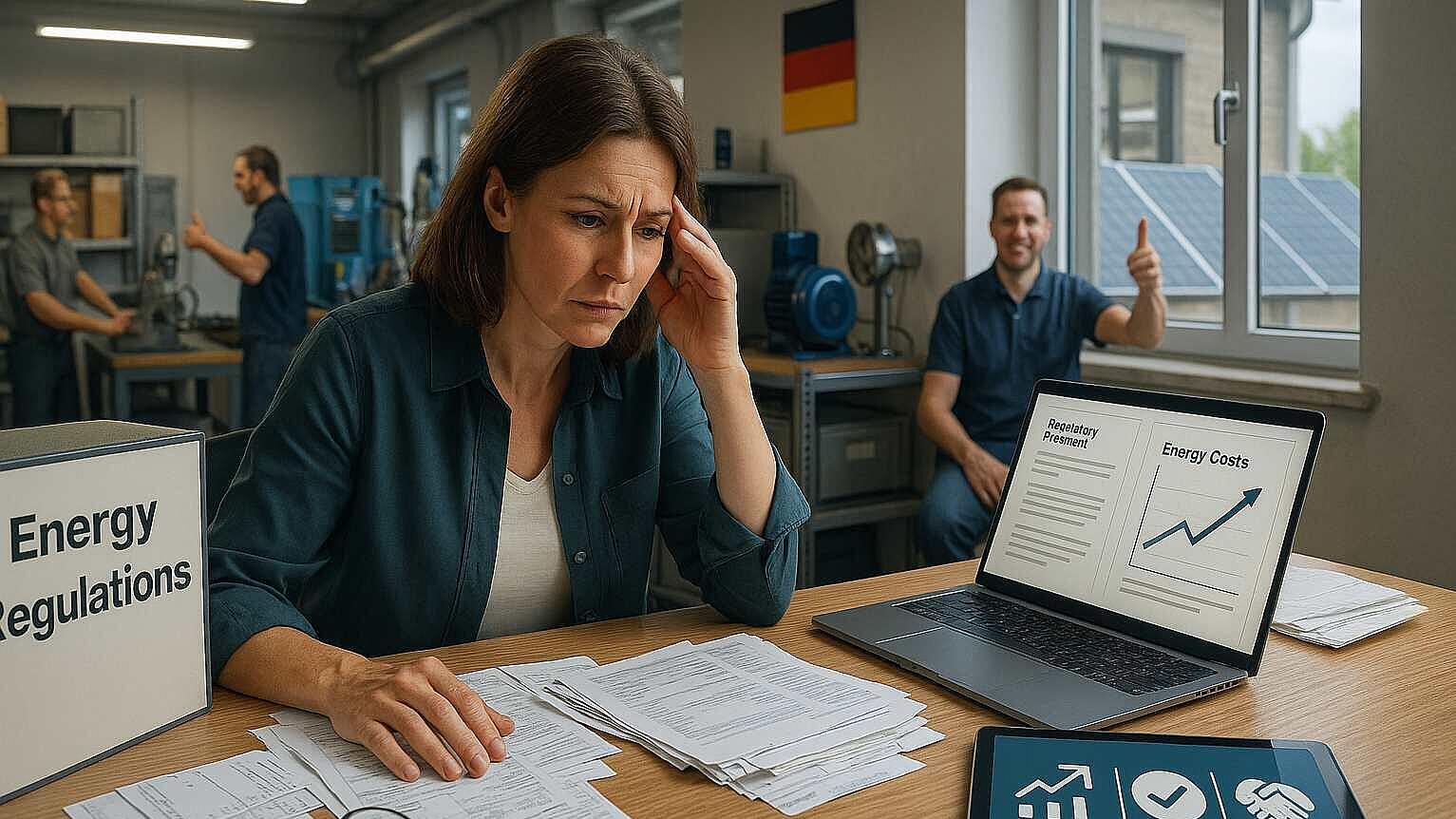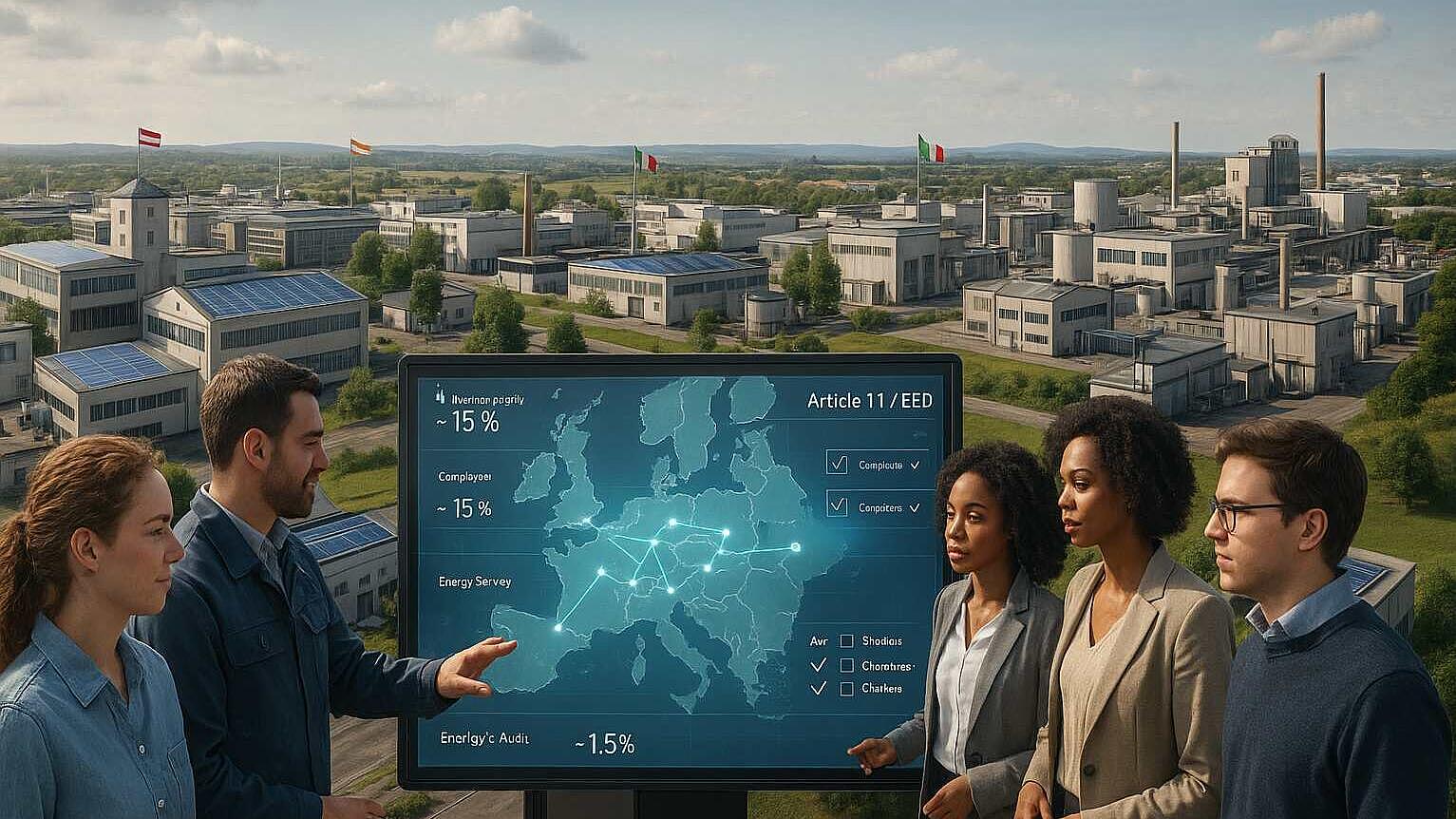 Energy Efficiency
Energy EfficiencyFive Big Steps for a Smarter, Greener Europe: Rethinking National Energy Schemes
Summary
The DEESME project aims to enhance energy efficiency in European SMEs by streamlining national schemes and creating user-centered recommendations that simplify and encourage energy efficiency investment. These recommendations address the barriers faced by SMEs, such as lack of information, complex regulations, and limited resources. Five main recommendations emerge from the project:
1. Develop One-Stop Information Hubs at national or regional levels, offering clear and accessible information on energy-related obligations, incentives, and funding opportunities, with an emphasis on ease of use and visual engagement.
2. Institutionalize the consideration of Multiple Benefits in energy audits, highlighting the broad advantages of energy efficiency beyond energy savings, and incentivizing projects that commit to such benefits.
3. Simplify Policy with structured, easy-to-read guidelines that clarify obligations and demonstrate the integration of energy audits with broader sustainability goals.
4. Encourage Carbon Footprint Tracking and incentivize companies to compete in carbon reduction achievements, creating benchmarks that stimulate industry-wide improvement.
5. Promote Benchmarking and Sector Comparisons, enabling companies to gauge their performance against industry peers, thus motivating energy efficiency initiatives through the establishment of transparent benchmarks.
Stakeholders emphasized the need for financial incentives, simplicity, trustworthy relationships, effective communication, and long-term support. For future professionals, DEESME highlights the importance of interdisciplinary skills required in the energy sector, focusing on policy design, digital marketing, and change management. The project also advocates for the involvement of individuals in energy policy through educational tools like the EnerWhizz mobile quiz game.
Open full article
Five Big Steps for a Smarter, Greener Europe: Rethinking National Energy Schemes
Picture a small company in Germany: the managing director juggles regulatory paperwork, rising energy bills, and the daily struggle of keeping staff motivated. She’s heard about energy efficiency, but when she tries to find information or funding, it’s a maze—regional websites, dense legislation, and conflicting advice from different authorities. Multiply this confusion across thousands of European SMEs, and you see why energy efficiency—Europe’s “first fuel”—often remains untapped.
But things are changing. Thanks to the DEESME project, national authorities and key industry actors across Europe are joining forces to turn energy efficiency from a box-ticking exercise into a growth engine for companies of all sizes. Their solution? Practical, user-centered recommendations for national schemes that make energy efficiency simple, accessible, and beneficial for everyone.
The Need for Smarter National Schemes
Europe’s Energy Efficiency Directive (EED) sets ambitious targets for saving energy, cutting emissions, and boosting competitiveness. But while large companies must carry out regular energy audits, SMEs often lack the time, staff, or capital to participate fully. National schemes differ from country to country, adding complexity and uncertainty. The challenge: How can national schemes truly support companies to invest in efficiency—not just to comply, but to thrive?
Enter the DEESME approach—a collaborative, bottom-up process involving workshops, surveys, and real-world pilots in Italy, Germany, Bulgaria, and Poland. The result is a set of five recommendations that could reshape national policies across Europe.
1. Build One-Stop Information Hubs
SMEs often don’t know where to start. The first step is to create central information platforms at the national or regional level. These hubs should:
- Offer clear, concise information about obligations, incentives, and funding for energy audits and management systems.
- Use engaging visuals, videos, and simple language to make technical content accessible.
- Allow feedback and user testing to ensure real usability.
- Involve trade associations and sector organizations to reach more businesses.
A well-designed hub saves time, reduces confusion, and encourages participation. Imagine logging in and instantly seeing every grant, legal requirement, or training opportunity relevant to your business—no more wild goose chases through government websites.
2. Highlight and Reward Multiple Benefits
Energy audits aren’t just about saving electricity. When companies also track non-energy benefits—like reduced maintenance, better indoor air quality, or improved worker safety—energy projects suddenly make much more sense.
National schemes should:
- Mandate that audits include multiple benefits (MBs) analysis, and integrate this into funding decisions.
- Use training materials and best-practice case studies to show companies how energy efficiency can boost productivity, reputation, and staff satisfaction.
- Give extra points or higher grant chances to projects that demonstrate a commitment to multiple benefits.
This isn’t just theory: DEESME found that when companies see the full picture, they’re far more likely to invest in upgrades—and reap unexpected rewards.
3. Make Policy Simple with Clear Guidelines
European and national regulations can feel like a labyrinth, especially for non-specialists. National authorities should develop structured, easy-to-read guidelines that explain:
- The links between energy obligations and broader sustainability goals (e.g., EU Taxonomy, Corporate Sustainability Reporting Directive).
- What companies actually need to do—and what they don’t.
- How energy audits, carbon footprints, and sustainability reporting fit together.
Think “policy handbooks” written in plain language, with flowcharts and practical examples. When companies know what’s expected and see a clear path, they’re more likely to take action.
4. Encourage Carbon Footprint Tracking and Competition
Linking carbon footprint calculations to energy audits brings a double benefit: companies get a better sense of their environmental impact, and healthy competition emerges between firms aiming to cut emissions.
DEESME recommends that:
- Governments encourage or incentivize carbon footprint assessments as part of energy audits.
- National authorities consider linking incentives and grants to companies’ carbon reduction achievements.
- Sectoral benchmarks and competitions for carbon performance be used to motivate both large and small companies.
The vision: Companies not only comply with energy rules but also race to become leaders in carbon reduction—a win for business and for the planet.
5. Use Benchmarking and Sector Comparisons
Many companies assume they’re “doing fine” until they see how they stack up against industry peers. Benchmarking—comparing your performance to sector averages—can be a powerful motivator.
DEESME suggests:
- National authorities work with industry, research centers, and consultants to develop relevant benchmarks for energy use, carbon emissions, and multiple benefits.
- Surveys and data collection become routine, feeding into updated, transparent benchmarks.
- Sharing benchmarks widely, so companies can see where they excel and where they need to improve.
With benchmarking, energy efficiency becomes less abstract—companies see concrete targets and real-world progress.
Voices from the Field: What Companies and Experts Say
In workshops and surveys, entrepreneurs and key actors across Europe agreed:
- Financial benefits and simplicity matter most—make it easy, make it pay off.
- Trust and relationships are key—official lists of certified auditors and trusted advice from associations help overcome skepticism.
- Communication is critical—case studies, practical guides, and digital marketing (like short YouTube explainers) get the message through.
- Long-term support is needed—SMEs want simple, reliable systems that don’t create more administrative work.
One participant in Germany summed it up: “We need a one-stop info hub, but nobody wants to manage that much information! The local chambers of commerce are a good entry point, but clear guidance from the top would help everyone.”
The Future: Your Role in the Energy Transition
For students and young professionals, these changes open up a world of opportunity. You’ll need skills that go beyond engineering—think digital marketing, communication, policy design, and change management. The energy transition needs people who can connect the dots between technology, policy, and people.
Imagine yourself helping to design the next generation of national energy schemes—where every SME can easily access support, track their progress, and celebrate their success.
Ready to Get Involved? Test Your Knowledge!
If you want to sharpen your skills in energy, policy, or sustainability, try the Enerwhizz mobile quiz! It’s a multilingual, fast-paced game with 45-second rounds, competitive leagues, missions, and prizes—designed to help you and your peers become the next leaders in Europe’s energy transition.
Conclusions
- National schemes must be simple, accessible, and holistic—offering clear information, real rewards, and a focus on multiple benefits.
- Benchmarking, carbon tracking, and strong communication turn energy efficiency from an obligation into a business opportunity.
- Tomorrow’s energy leaders will be those who make policy work for people—connecting technical know-how with practical action.
Sources & more…
More on National Schemes EED: https://ieecp.org/wp-content/uploads/2024/10/D4.5_Key-actors-recommendations-to-improve-national-schemes_CLEAN.pdf
More on D2050, the underlying EU project, check via “all EEIP projects”: https://projects.ee-ip.org/#ongoing-projects
More information on the EnerWhizz mobile quiz game, check: https://www.enerwhizz.info/



